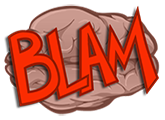Juan Camilo Cortés
Juan Camilo joined BLAM Lab in July 2016 after completing his postdoctoral training at the Motor Performance Lab at Columbia University.
At Columbia University, Juan Camilo was in charge of the clinical training for the outcome assessments of our ongoing clinical trial on potentiating motor recovery after stroke with intensive therapy. Prior to this experience, he was conducting research in the natural history of motor recovery after stroke and researching the motor control abnormalities in Parkinson’s and Huntington’s. At this same institution, he volunteered for over 5 years at the New York Brain Bank, exploring the neuropathology of movement disorders.
Juan Camilo completed his medical training at the Industrial University of Santander and at the University Hospital of Santander, both institutions located in his hometown of Bucaramanga, Colombia.
As of July 2019, Juan Camilo is a Neurology resident at Johns Hopkins after completing his Internal Medicine year at Johns Hopkins Bayview.
In his free time, Juan Camilo enjoys salsa dancing, playing soccer and tennis, and elucidating the sartorial basis of ballroom etiquette.
Selected Publications
Differential post-stroke motor recovery in an arm versus hand muscle in the absence of motor evoked potentials. Heidi M. Schambra, Jing Xu, Meret Branscheidt, Martin Lindquist, Jasim Uddin, Levke Steiner, Benjamin Hertler, Nathan Kim, Jessica Berard, Michelle D. Harran, Juan C. Cortes, Tomoko Kitago, Andreas Luft, John W. Krakauer, and Pablo Celnik. Neurorehabilitation and Neural Repair (in press)
Rethinking interhemispheric imbalance as a target for stroke neurorehabilitation (2019). Jing Xu, Meret Branscheidt, Heidi Schambra, Levke Steiner, Mario Widmer, Jörn Diedrichsen, Jeff Goldsmith, Martin Lindquist, Tomoko Kitago, Andreas Luft, John W. Krakauer, Pablo Celnik, and the SMARTS Study Group. Annals of Neurology (in press).
A non-task-oriented approach based on high-dose playful movement exploration for rehabilitation of the upper limb early after stroke: A proposal (2018). John W. Krakauer and Juan Camilo Cortés. NeuroRehabilitation, July 24, 2018. DOI: 10.3233/NRE-172411
Evidence for a subcortical origin of mirror movements after stroke: a longitudinal study (2018). Naveed Ejaz, Jing Xu, Meret Branscheidt, Benjamin Hertler, Heidi Schambra, Mario Widmer, Andreia V. Faria, Michelle D. Harran, Juan C. Cortes, Nathan Kim, Pablo A. Celnik, Andreas R. Luft, John W. Krakauer, and Jörn Diedrichsen. Brain (January 31, 2018). doi:10.1093/brain/awx384
Modeling motor learning using heteroskedastic functional principal components analysis (2018). Daniel Backenroth, Jeff Goldsmith, Michelle D. Harran, Juan C. Cortes, John W. Krakauer, and Tomoko Kitago. Journal of the American Statistical Association (published online: September 4, 2017). doi:10.1080/01621459.2017.1379403
Separable systems for recovery of finger strength and control after stroke (2017). Jing Xu, Naveed Ejaz, Benjamin Hertler, Meret Branscheidt, Mario Widmer, Andreia V. Faria, Michelle D. Harran, Juan C. Cortes, Nathan Kim, Pablo A. Celnik, Tomoko Kitago, Andreas R. Luft, John W. Krakauer, and Jörn Diedrichsen. Journal of Neurophysiology (May 31, 2017). doi:10.1152/jn.00123.2017
A short and distinct time window for recovery of arm motor control early after stroke revealed with a global measure of trajectory kinematics (2017). Juan C. Cortes, Jeff Goldsmith, Michelle D. Harran, Jing Xu, Nathan Kim, Heidi Schambra, Andreas R. Luft, Pablo Celnik, John W. Krakauer, Tomoko Kitago. Neurorehabilitation and Neural Repair (March 16, 2017) DOI: 10.1177/1545968317697034.

